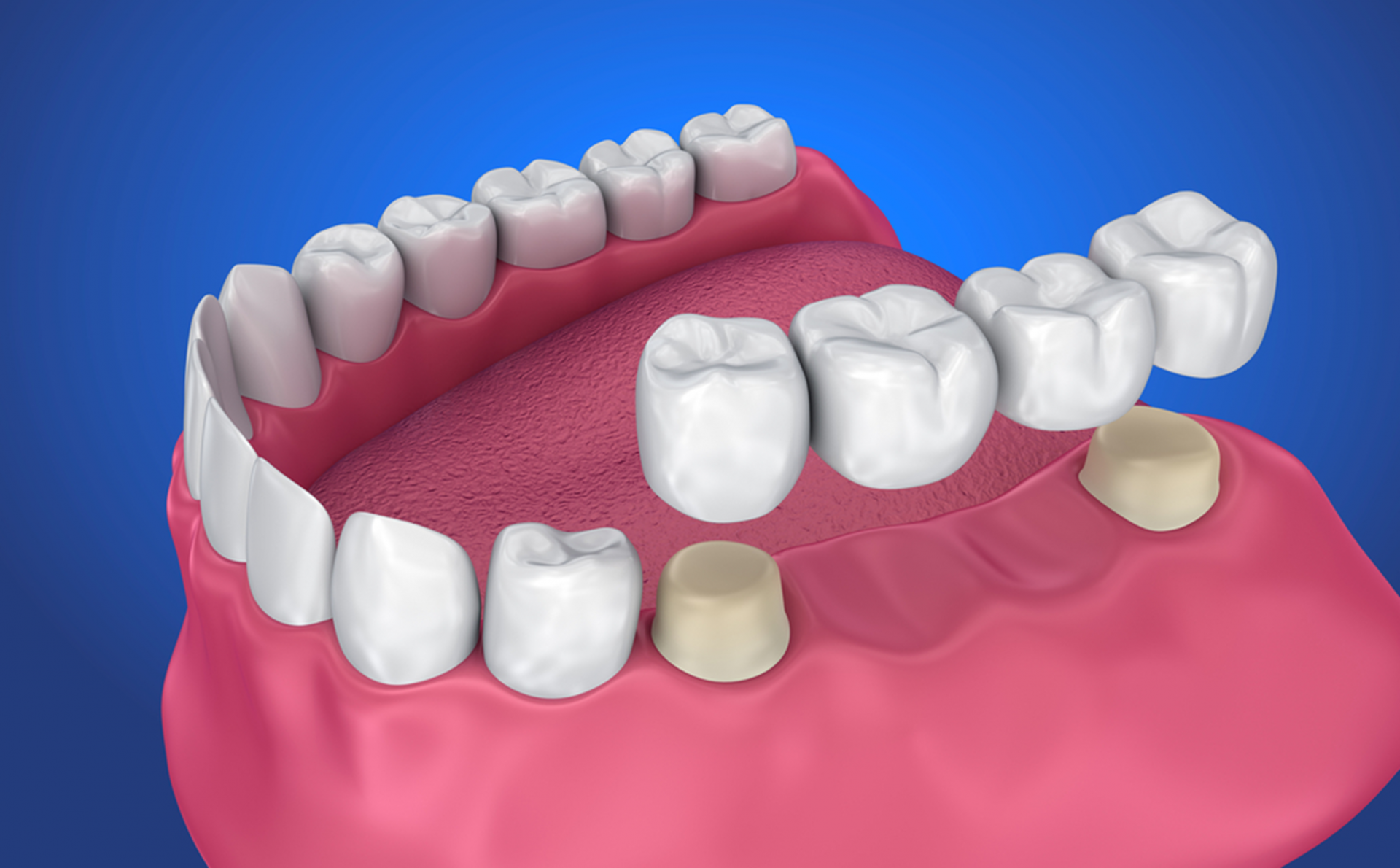Dental bridges in Toronto replace missing teeth by supporting artificial teeth in the gaps produced by tooth loss or extractions. Bridges restore both the appearance of your healthy and natural smile while also restoring your ability to eat, chew and bite naturally. A bridge also contributes to the long-term health of your mouth and the other teeth in your jaw by preventing neighbouring teeth from shifting, spreading or twisting. Depending on what type of dental bridge your dental clinic in Toronto provides, a bridge may even stimulate the growth of new and healthy jaw bone tissue while preventing the loss of bone mass that follows sustained tooth loss.
The four types of dental bridges we’ll introduce here are not removable but fixed in your mouth on a permanent basis. You’ll never need to be anxious about the bridge slipping or feeling loose as you eat or laugh. Furthermore, you won’t need to learn any new dental hygiene regimen to care for your bridges. You will not need any special products or procedures like you need to care for dentures, for example.
Here’s an introduction to the basic types of bridges and the factors that affect costs.
The four kinds of bridges
There are four main types of dental bridges. Which option is best for you is something to discuss with a dentist near you who is familiar with the health of your teeth, gums, jaw and lifestyle.
Traditional dental bridges in Toronto support replacement teeth between two crowns placed over the top of healthy teeth on each side of the gap (called abutment teeth) that have been prepared to receive those crowns.
Cantilever dental bridges work in the same way as a traditional dental bridge except that the bridge is anchored only by a single crown. A cantilever bridge is weaker than a traditional bridge simply because it has support only from a single tooth.
Maryland bonded bridges do not use crowns like traditional or cantilever bridges. Rather, the replacement tooth or teeth supported by a Maryland bridge are held in place by a metal or porcelain structure that is bonded to the back of your adjacent teeth without the need for any crowns.
Implant-supported bridges are an entirely different kettle of fish. An implant-supported bridge does not need any support of any kind from any adjacent teeth. Rather, a titanium post is implanted into your jaw bone, which post holds an abutment that grips the replacement teeth. Implant-supported bridges are the strongest and most stable type of bridge available. Unlike traditional, cantilever and Maryland bridges that need to be replaced from time to time, dental implants may last your lifetime. Implant-supported bridges can support as many as four replacement teeth in a single structure.
What goes into the cost of bridges?
It’s impossible to give a precise estimate of the costs of any dental treatment in the absence of a careful examination and personalized treatment plan, but there are several factors that influence that cost:
- A Maryland bridge for a single tooth may be the least expensive bridge alternative
- Traditional dental bridges to replace a single tooth (and two crowns for abutment teeth) are more expensive than a Maryland bridge
- Implant-supported bridges are the most expensive option, but that up-front cost needs to be balanced by the value of not relying on or needing to alter adjacent teeth and the increased stability and lifespan of an implant-supported bridge
To determine whether a dental bridge is right for you — and what type of bridge will best meet your needs — arrange a consultation with a dentist near you.
